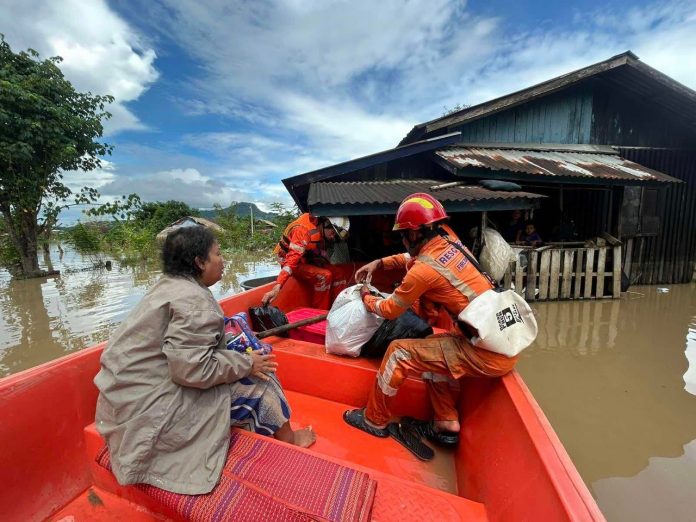The latest World Bank report on the Myanmar economy paints a bleak picture of declining output across multiple sectors, food insecurity, and ongoing inflation at around 26 percent.
The Myanmar Economic Monitor for December 2024 reports the economy has been hit hard by natural and man-made disasters, including floods caused by the remnants of Typhoon Yagi on Sept. 9 as well as the continuing crisis caused by the Feb. 1, 2021 military coup.
“The recent natural disasters and ongoing conflict have severely impacted Myanmar’s economy, with households bearing the brunt of rising prices and labor market weakness,” said Melinda Good, the World Bank country director for Thailand and Myanmar.
“It is urgent and critical to support recovery efforts to help the most vulnerable populations rebuild their lives and livelihoods,” she added. The U.N. has documented that over 3.4 million people are currently displaced from their homes in Myanmar. It stated that one million people were impacted by flooding this year.
Violence and conflict now affects more than half of Myanmar’s 330 townships. This continues to disrupt supply chains and border trade. Particularly hardest-hit are Myanmar’s manufacturing, agriculture and service sectors.
The World Food Programme (WFP) states that 18.6 million people need urgent humanitarian assistance in Myanmar and 13.3 million are food insecure.
The World Bank report predicts a one percent contraction in the economy by the end of March 2025, highlighting ongoing problems with the supply of raw materials, inadequate electricity and a weakness in domestic demand.
Damaged infrastructure and disrupted production caused by remnants of Typhoon Yagi, which struck Myanmar on Sept. 9 and caused widespread flooding, plus unusually heavy rains during the monsoon season this year also made an impact.
The report also examined the impact of migration both internally and internationally, finding that the current situation is resulting in increased costs for migrants and reduced economic gains.
“In recent years migration has been spurred by ‘push factors’ including elevated conflict, the threat of conscription, declining real incomes, and reduced economic opportunities. These factors often mean that relocations are hurried and poorly planned, with the implication that migrants are less able to look for a suitable job and come under pressure to accept work that they may be overqualified or underpaid for,” the report stated.
Recent migration flows highlight the fragility of Myanmar’s economy, according to one of the report’s authors, Kim Edwards, the World Bank senior economist and program leader for Myanmar and Thailand.
“Much of the recent out-migration has occurred under duress and via informal channels, reducing the gains from migration and increasing its costs. More can be done to facilitate migration through regular channels: this will ultimately benefit receiving countries as well as Myanmar workers and their families,” she added.



